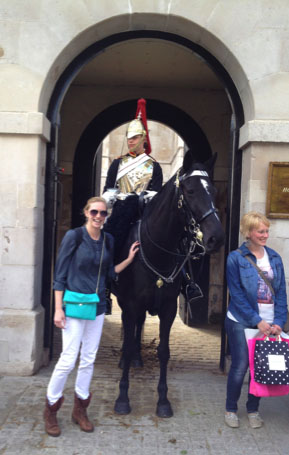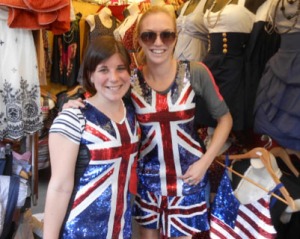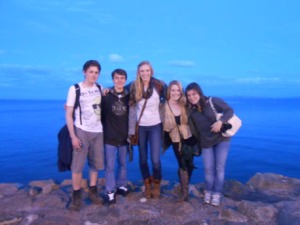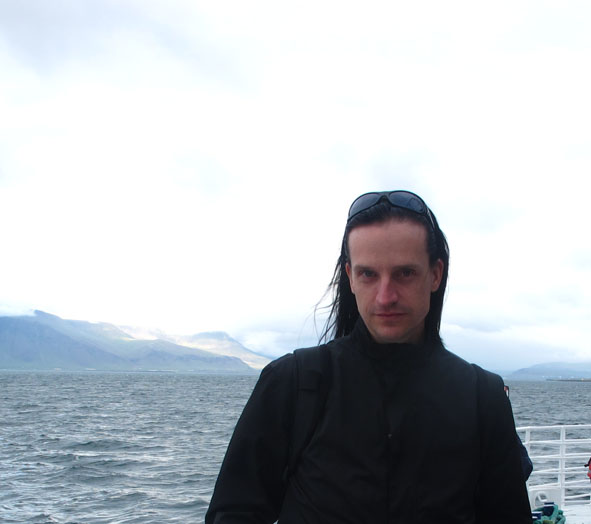In this guest post, Carly Ledbetter explains how she got started as a travel blogger and copywriter.
Before I left the US to study abroad in London, one of my professors gave me a simple request, ‘Write a blog’.
My first thought was quite the opposite – no way was I going to write a blog. Who would want to read my writing? I’m boring and won’t have anything to talk about! Even though I’ve been writing since I was very little (probably around 5th grade), I’d only ever shared travel journals with family or close friends. Having my writing out in the open, on the Internet of all places, was not only daunting, but potentially very embarrassing!
Just to spite my professor, I ended up going to Barnes and Noble to buy a notebook. On the plane ride to London I began to scribble away, but by about Day 3 I was itching to try my hand at travel blogging. I’d read my flatmate’s blogs, and I figured that I could give it a try. I wrote my first post, named it something inappropriate (Bonking Norah), and then emailed the link to my family. Being family, they praised my work and encouraged me to share it with other people. I figured it wouldn’t hurt to try, so I started sharing my posts on Facebook.
I never took my laptop when I travelled because I stayed in hostels and was too cheap to pay for a storage locker.
Within ten minutes of posting it, Bonking Norah took off. Friends started commenting on the blog, sharing posts, and messaging me their concerns about my well-being (I have a knack for getting into trouble). In a few short days I would go from being too embarrassed to post to tracking page views on Google Analytics. I was so excited that people were reading my writing that I almost started doing crazy things just so more people would read it.
Along with the joys that normally accompany writing and telling stories, there were also a few difficulties. For one thing, my embarrassing moments on the trip were out there for everyone to read, and I had to be okay with that. I also never took my laptop when I travelled because I stayed in hostels and was too cheap to pay for a storage locker that still might get broken into. That meant keeping notes in my phone, or writing down things the old-fashioned way (which I actually prefer). At one point during the summer, my computer stopped working because of the amount of pictures and videos that I’d loaded, so I’m still uploading old posts from nearly a year ago. Despite these difficulties, I was still able to attract thousands of views and entertain a lot of people.
But the reason behind the success of my blog was not necessarily because of my writing style or my lack of grammatical knowledge – Bonking Norah was successful because I had great adventures and then wrote about them. Ryan Holiday, a successful, young American writer, wrote an amazing article called So You Want to Be a Writer? That’s Mistake #1 about not just becoming a good writer, but ‘do[ing] interesting things’. It’s an important article that I not only totally agree with, but I think every single budding writer needs to read. Even though I’m still updating my blog a year later (which makes it less timely or relevant) it’s okay because people are still interested in the things I did. My adventures were not only fun, but they also landed me a job.
Blogging about my experience in London literally changed my entire career path during the summer before my senior year of college. I went to London for a legal internship, but found that the moment I looked forward to the most was writing my blog before I went to bed. When I returned to the States, I knew that I wanted to forgo law school (at least for the time being) and try my hand at being a writer. The change in careers paid off, and I’m now employed writing for GetDirectTV. If you go to the website, you can actually see the copy I’ve created for Internet customers. Writing for my day job just makes it all the more fun to come home and write for awesome blogs like this one.
Bonking Norah was successful because I had great adventures and then wrote about them.
The professor that encouraged me to write the blog while I was in the UK emailed me during the height of my blogging that summer. She loved that I’d taken her advice to heart, but had one piece of advice left for me, ‘Learn to use a semi-colon properly’. When travel-blogging, one can only focus on so much. But focus on the adventures, and the rest should follow. Happy writing to you!
Carly Ledbetter is a copywriter for GetDirectTV by day, and a struggling creative writer by night. She is a recent graduate of Elon University where she played volleyball and annoyed a lot of professors. You can read about more of her adventures by checking out her Bonking Norah blog. (Carly didn’t understand that ‘bonking’ was slang for something dirty, and hopefully you don’t either.)



